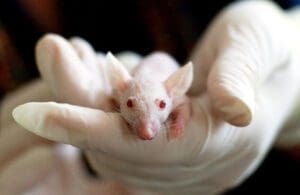
[Photo by Pixabay]
The U.S. House has approved the FDA Modernization Act 2.0, which would end the animal testing requirement for new drugs and biosimilars.
The bill doesn’t completely ban testing on animals but enables drug developers to use alternatives when feasible.
In September, the U.S. Senate passed the FDA Modernization Act 2.0, S.5002.
The new policy, known as the Reducing Animal Testing Act, was attached to the $1.7 trillion omnibus spending bill.
Before Christmas, Biden vowed to sign the bill as soon as it reached his desk.
Section 3209 of the bill amends the Federal Food, Drug, and Cosmetics Act (FFDCA) to specify “nonclinical tests” instead of “preclinical tests.” It also swaps the term “animal” for “nonclinical tests” and adds new text identifying that “nonclinical tests” may incorporate human-relevant testing methods. Those methods may include cell-based assays, bioprinted models and microphysiological systems, including organ-chips or computer models.
A growing number of companies are working on developing AI-models that could reduce or replace the need for animal testing in some situations in the coming years.
The federal mandate for animal testing has been U.S. law since 1938.
The FDA Modernization Act 2.0 won support from more than 200 organizations. Generics giant Teva was the only pharma backer.
The omnibus spending bill also had a provision to earmark $5 million for an FDA New Alternative Methods Program designed to curb animal testing.
The original FDA Modernization Act 2.0 spending bill was introduced by Senators Dr. Rand Paul (R-KY) and Cory Booker (D-NJ).
It was based on S.2952, the FDA Modernization Act of 2021.
Earlier in December, New York Governor Kathy signed into law a provision that blocks the sale of cosmetics that had been recently tested on animals. A total of 10 U.S. states have passed such legislation.